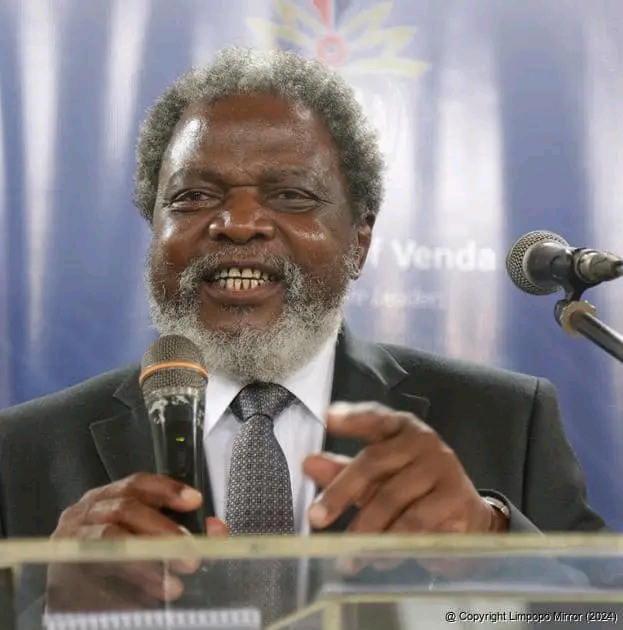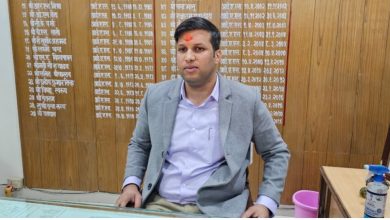Prof. Muxe Nkondo Biography: Age, Wikipedia, Cause Of Death, Wife, Family Education, Career, Net Worth

Prof. Muxe Nkondo Biography
Muxe Nkondo was a distinguished South African scholar, academic, and heritage expert who passed away on August 18, 2024. He was widely respected for his extensive contributions to education, social policy, and cultural heritage in South Africa. Nkondo served as the Vice-Chancellor of the University of Venda and held various other academic positions, including Deputy Vice-Chancellor of the University of the North. His work was influential in shaping public policy across a range of sectors, from arts and culture to science and technology.
Nkondo’s legacy includes his leadership in the conceptualization of the Liberation Heritage Route, which celebrates South Africa’s struggle for freedom and democracy. He also lectured at several universities in the United States and served as a governance advisor to numerous South African institutions.
Prof. Muxe Nkondo Age
Prof. Muxe Nkondo passed away at the age of 83.
Prof. Muxe Nkondo Tribe
Muxe Nkondo belonged to the Venda Tribe.
Prof. Muxe Nkondo Hometown
Muxe Nkondo was originally from the Limpopo Province in South Africa.
Prof. Muxe Nkondo Educational Background
Muxe Nkondo had an extensive and distinguished educational background that laid the foundation for his impactful career as a scholar and academic. He was a Harvard Andrew Mellon Fellow in English, a prestigious fellowship that allowed him to further his academic studies and research.
His academic journey also included lecturing at several universities in the United States, where he contributed to curriculum development and governance.
Prof. Muxe Nkondo Career
Muxe Nkondo was a towering figure in South Africa’s academic and cultural landscape, with a career that spanned several decades and touched numerous fields. His work as a scholar, educator, and policy advisor was marked by a relentless pursuit of knowledge and a deep commitment to social justice and cultural heritage. Nkondo’s contributions have left a lasting impact on both national and international stages, influencing education, public policy, and cultural discourse. Let’s explore his career journey:
Leadership at the University of Venda
One of Nkondo’s most significant roles was as the Vice-Chancellor of the University of Venda, a position he held with distinction. During his tenure, he was instrumental in transforming the university into a hub of academic excellence, particularly in the fields of social policy, cultural studies, and community engagement. Nkondo championed the integration of traditional African knowledge systems into the academic curriculum, ensuring that the university served not only as a place of learning but also as a custodian of cultural heritage.
Read Also: Aiah Arceta Biography: Age, Birthday, Career, Boyfriend, Net Worth
Contributions to Public Policy
Nkondo’s influence extended beyond academia into the realm of public policy, where he played a crucial role in shaping various national strategies. As the chair of numerous expert panels and reference groups, Nkondo contributed to the development of policies in areas ranging from tourism and human settlements to science and technology, and arts and culture. His work in these areas was driven by a deep understanding of the interconnectedness of these fields and their importance to the social and economic development of South Africa.
International Engagements and Lectures
Nkondo’s academic influence was not confined to South Africa; he also made significant contributions on the international stage. He lectured extensively at universities in the United States, where he shared his insights on social policy, cultural heritage, and discourse analysis. His international engagements were marked by a commitment to fostering cross-cultural understanding and bridging the gap between African and Western academic traditions. Nkondo’s ability to engage with diverse audiences and adapt his teaching to different cultural contexts made him a respected figure in global academia.
Role in Curriculum Development
Beyond his lectures, Nkondo played a pivotal role in curriculum development, both in South Africa and abroad. He was a sought-after advisor for universities such as the University of South Africa (UNISA), the University of KwaZulu-Natal, and Tshwane University of Technology. Nkondo’s contributions to curriculum development were driven by his belief in the need for education systems that reflect the diverse cultural backgrounds of students. He advocated for curricula that incorporated African knowledge systems, languages, and histories, ensuring that students could engage with their cultural heritage within the formal education system.
Champion of Cultural Heritage
Nkondo was also a leading advocate for the preservation and promotion of cultural heritage. His work in this area was most notably exemplified by his leadership in the conceptualization of the Liberation Heritage Route, a project that sought to preserve and celebrate South Africa’s struggle for freedom and democracy. Nkondo believed that cultural heritage was a vital part of national identity and played a crucial role in fostering social cohesion. He worked tirelessly to ensure that South Africa’s cultural heritage was recognized, preserved, and promoted, both within the country and internationally. His efforts in this area have left a lasting legacy, with the Liberation Heritage Route serving as a powerful reminder of the country’s history and the sacrifices made in the pursuit of freedom.
Contributions to Social Policy and Governance
In addition to his work in education and cultural heritage, Nkondo made significant contributions to social policy and governance. He was frequently called upon to serve on expert panels and advisory boards, where his insights were highly valued. Nkondo’s work in this area was characterized by a focus on social justice, equity, and inclusivity. He was particularly concerned with issues related to housing, public administration, and community development, and his contributions to policy in these areas helped to shape South Africa’s post-apartheid social landscape.
Prof. Muxe Nkondo’s Death
Muxe Nkondo passed away on August 18, 2024, at the age of 83. His death marks the end of a life dedicated to the pursuit of knowledge, the promotion of cultural heritage, and the advancement of education in South Africa and beyond.
Following his death, tributes poured in from across the country and internationally. President Cyril Ramaphosa expressed deep condolences, highlighting Nkondo’s relentless pursuit of knowledge and his contributions to making South Africa and the world a richer, more inclusive place.
Prof. Muxe Nkondo Family: Wife and Children
Muxe Nkondo was married to Professor Olga Nkondo, a fellow academic. Together, they had a large family, including six children named Ntsako, Muxe, Mikateko, Zava, Mbonya, and Nkenyezi. Nkondo’s family also includes grandchildren and a great-grandchild.
FAQs
Who was Muxe Nkondo?
Muxe Nkondo was a prominent South African scholar, academic, and cultural heritage expert known for his contributions to education, public policy, and social justice.
What was Muxe Nkondo’s role at the University of Venda?
Muxe Nkondo served as the Vice-Chancellor of the University of Venda, where he played a crucial role in transforming the university into a center of academic excellence and cultural preservation.
What are some key contributions of Muxe Nkondo?
Nkondo made significant contributions to public policy in areas such as tourism, human settlements, science and technology, and arts and culture. He also played a key role in the conceptualization of the Liberation Heritage Route.
What was Muxe Nkondo’s role in public policy?
Nkondo chaired various expert panels and reference groups, contributing to the development of public policies in South Africa, particularly in tourism, human settlements, public administration, and arts and culture.









